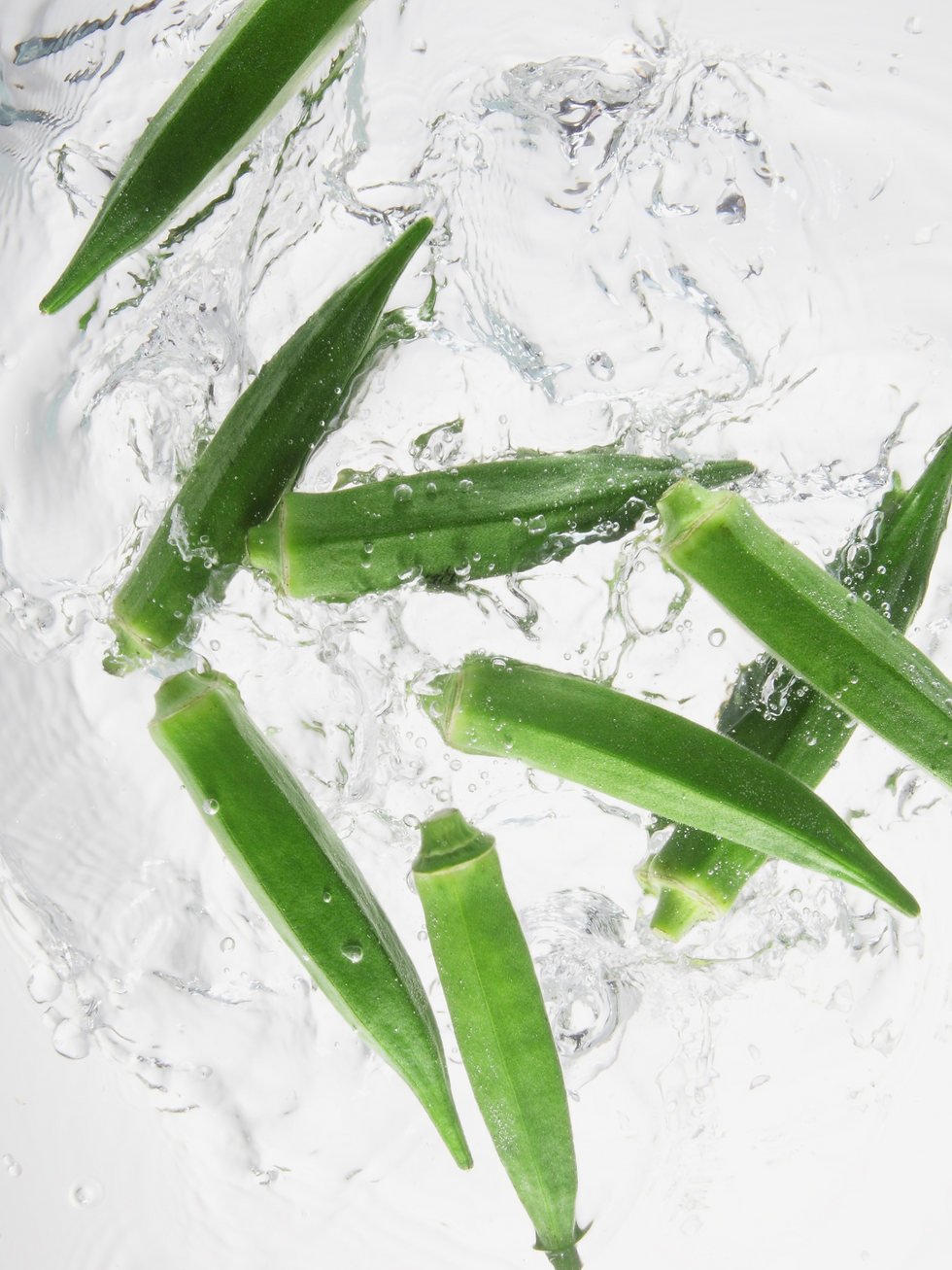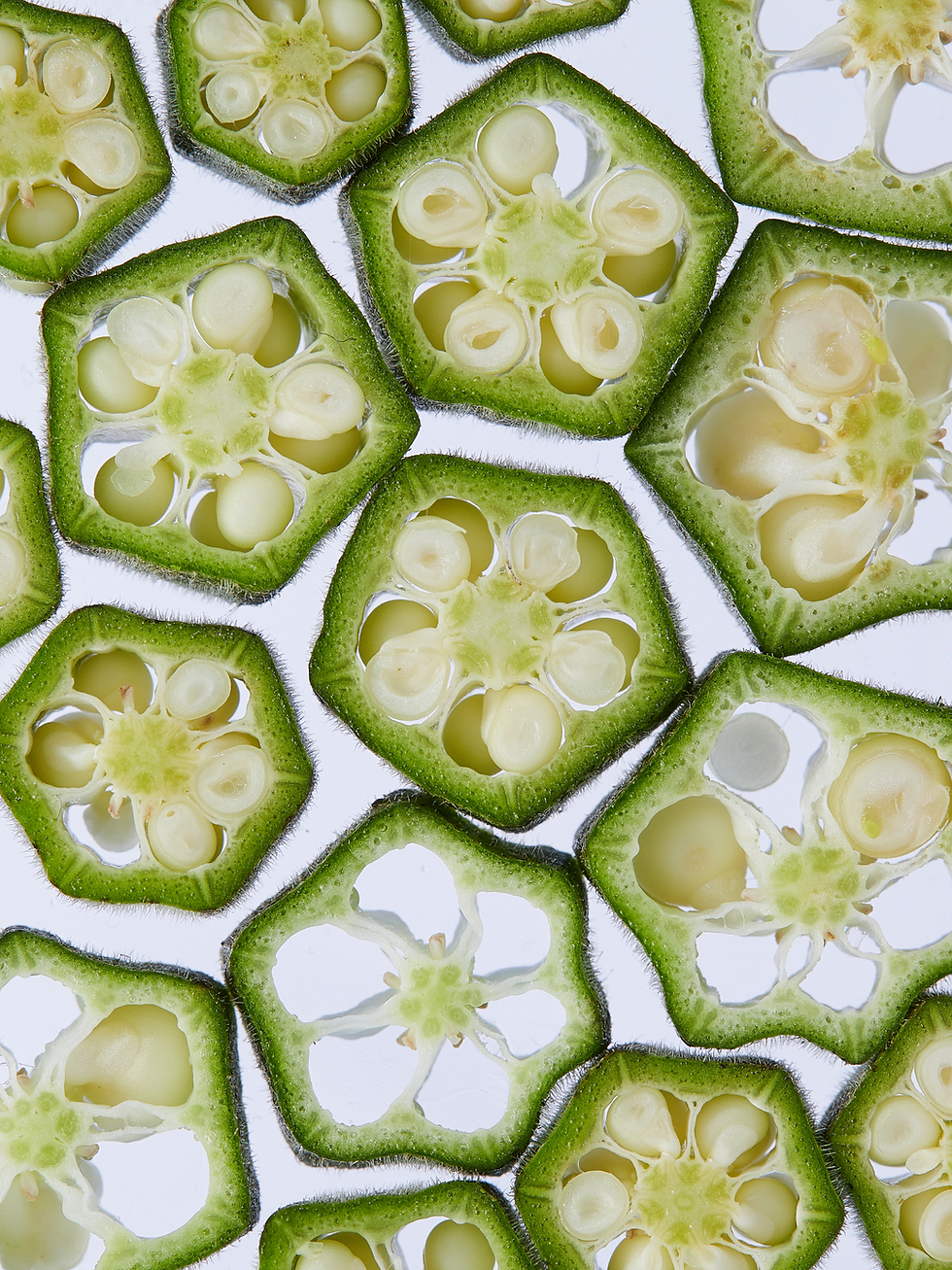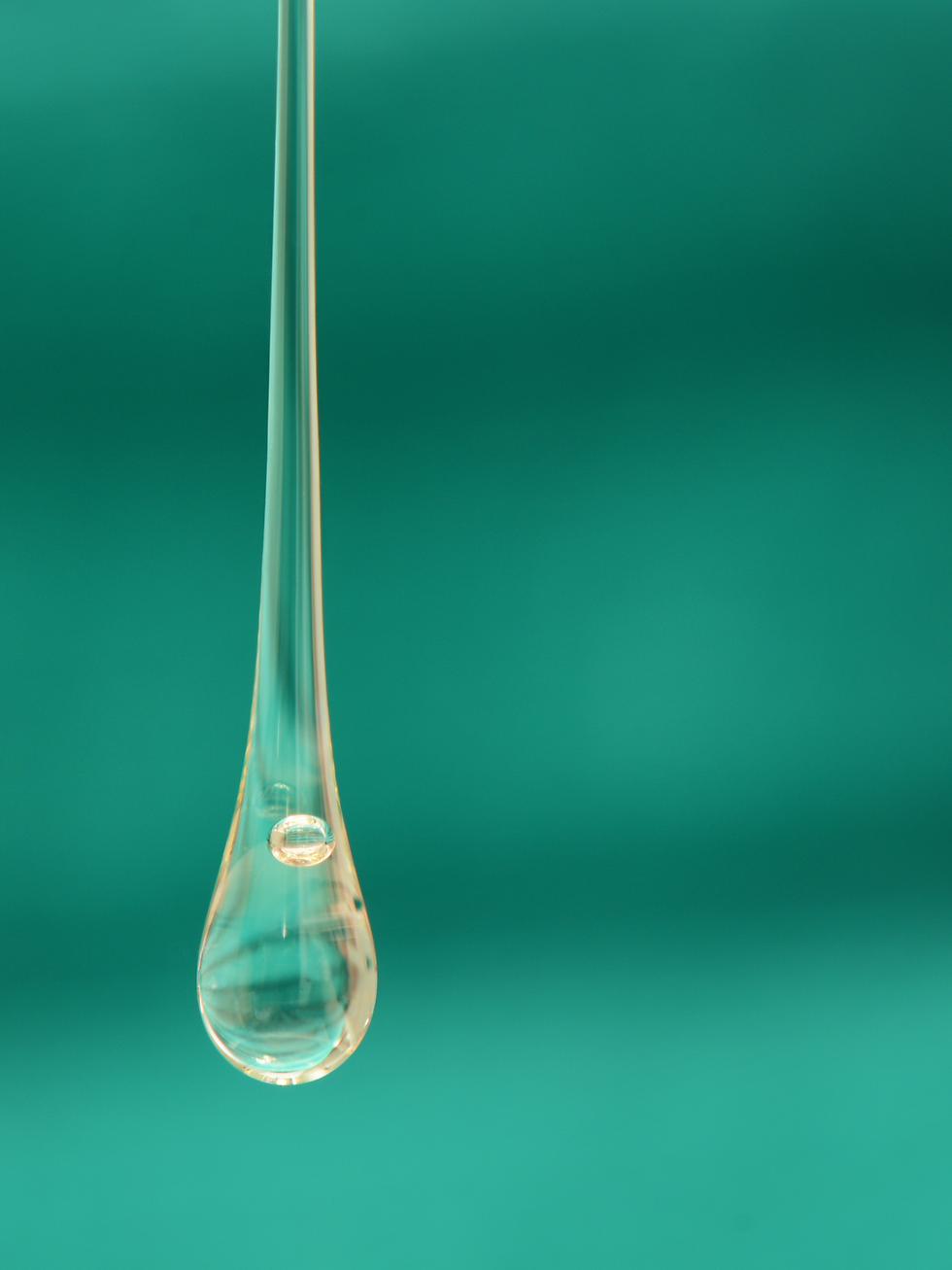Juicy by Nature: Okra Water & the Fertile Body
- Marisa Colon
- May 20
- 5 min read
Updated: May 31

Women are infusing, steeping, and blending okra water in the name of hydration, fertility, and cultivating a more nourished, vibrant body and, yes, in hopes of a juicier vulva. The vulva and vaginal canal are intricate, self-cleaning ecosystems, intimately influenced by diet, lifestyle, and stress. What you eat or do not eat shows up in your tissues. When we chronically dehydrate ourselves, skimp on mineral rich foods, or live in a constant state of stress, the body redirects moisture to essential systems and leaves less for everything else, including vaginal lubrication.
Okra water is not a gimmick. It's simply one small, beautiful piece of a much bigger return: a return to honoring your body as a living garden that responds to what you nourish it with.
Medical conditions aside, many of the dryness, discomfort, and imbalances women experience are not inevitable. They are consequences of a culture that has divorced us from slow living, real food, and cyclical care. The beautiful truth is: you can take back control. Through plants that love water, like okra, flax, chia, sea moss, aloe, and fruits bursting with minerals, you can help rehydrate your tissues from the inside out, support cervical mucus production, and create a lush, thriving internal environment.
Let’s also talk about the truth behind dryness. For biologic females, chronic dryness should not be our baseline, yet it has become the norm for entirely too many. Outside of medication side effects or specific health conditions, this is not something we should accept as normal. The messy truth is, much of this is environmental and dietary, and that means it can be changed.
What we put in our bodies and on our skin has a direct influence on our tissue health, moisture levels, and overall vibrancy. Unlike sleep, financial stability, or external stressors, which take time and layered effort to shift, this part is actually within our immediate control. Drink more water. Aim for at least 90oz a day. Eat foods that are truly hydrating, full of life, full of minerals, full of fiber. Let go of the processed, dried out, sugar laden snacks that pull moisture from your cells and leave your tissues starving. Your hydration is not just about thirst, it's about function. Cellular function. Vaginal function. Reproductive function.
This is not about quick fixes, it's a whole rhythm. A song and a dance we get to lead.
So What Makes Okra So Powerful?

Okra (Abelmoschus esculentus) is rich in mucilage — a natural, gel-like substance that gives it that slippery texture. This mucilage is packed with soluble fiber, supporting gut health, stabilizing blood sugar, and enhancing hydration at a cellular level. Okra also brings a powerful roster of nutrients:
Vitamin C — Boosts immune health and tissue repair.
Vitamin A — Supports mucous membrane health and vision.
Magnesium — Critical for muscle relaxation, hydration balance, and hormone production.
Calcium — Essential for reproductive tissue strength.
Folate — Vital for fertility and healthy menstrual cycles.
Potassium — Regulates fluid balance and nerve function.
Eating okra whole gives you all this and more — the fibers, the antioxidants, the full matrix of benefits. Okra water is a simpler method to quickly access the mucilaginous hydration benefits — but it’s not magic. It's just a piece of the puzzle.
How Okra Water Supports Fertility and Vaginal Health

Okra water’s real power is its ability to hydrate you from the inside out. When your tissues are properly hydrated, cervical mucus production improves — and cervical mucus is crucial for fertility, lubrication, and overall vaginal health.
Healthy cervical mucus is:
Clear, stretchy, and abundant around ovulation
A safe, nourishing environment for sperm
A sign of well-balanced hormones and good hydration
Okra’s nutrients (especially Vitamin C, Magnesium, and Folate) work together to support hormonal function, hydration, and a receptive uterine and vaginal environment.
Your Cycle is Speaking — Are You Listening?
Eating with your cycle can maximize not just hydration but also your fertility, energy, and hormonal balance. Here’s a simple breakdown:
Menstrual Phase (Days 1–5):Focus on iron-rich foods, mineral broths, and hydration. Plants like beets, nettle, dark leafy greens, and hibiscus tea help rebuild lost nutrients.
Follicular Phase (Days 6–13):Support rising estrogen with fresh, vibrant foods. Think cucumber, okra, berries, flax seeds, and chia.
Ovulatory Phase (Days 14–16):This is peak cervical mucus time! Hydrate heavily with fruits like watermelon, peaches, and okra. Add sea moss or aloe for bonus hydration support.
Luteal Phase (Days 17–28):Support progesterone and soothe inflammation with grounding foods — sweet potatoes, pumpkin seeds, leafy greens, and warming herbs like cinnamon and ginger.
Other Plant Allies for Hydration and Mucus Production

Okra isn’t the only player. These plants deserve a spot on your plate too:
Flax Seeds: Rich in lignans and Omega-3s for cervical fluid and hormone balance.
Chia Seeds: Hydrophilic seeds that trap water and keep you juicy at the cellular level.
Aloe Vera: Soothing, anti-inflammatory, and hydrating from the inside out.
Sea Moss: High in iodine and minerals critical for thyroid and hormonal health.
Cucumber: High water content, easy to digest, refreshing to tissues.
Berries (Blueberries, Strawberries, Blackberries): Full of antioxidants that protect and nourish reproductive tissue.
How to Make Okra Water
Simple is powerful. Here's a basic method:
Ingredients:
4–5 fresh okra pods
1–2 cups of filtered water
Optional: a squeeze of lime or a slice of ginger
Instructions:
Rinse and slice the okra pods.
Place in a jar with water and let it steep overnight (8–12 hours).
Strain and drink on an empty stomach in the morning if desired.
Note: You can also blend the pods and strain if you prefer a stronger infusion.
A Gentle Note
While okra water is safe for most, always be mindful if you are taking medications or managing medical conditions. Plants are powerful — make sure to consult with your care team if needed.
You Are the Garden

Okra water is beautiful, but it’s a doorway not a destination. True fertility, hydration, and vibrancy come from consistent, loving care of your body. You deserve real nourishment, from plants that have been loving us back for thousands of years.
So sip your okra water if you love it. But also sit down with a plate of real food. Eat the okra. Enjoy the berries. Hydrate yourself because your body is worthy of thriving not just surviving. A trend is cute but making these foods part of your everyday life is revolutionary.
Sources
Instacare. Okra Water and Female Fertility: What You Need to Know. https://instacare.pk/blog/okra-water-and-female-fertility
Google Patents. Composition that can be used as cervical mucus substitute.https://patents.google.com/patent/WO2018052848A1/en
National Institutes of Health (NIH), PMC. Folate: A Vitamin for Reproductive Health.https://www.ncbi.nlm.nih.gov/pmc/articles/PMC10106077
Health.com. 6 Potential Health Benefits of Okra Water. https://www.health.com/okra-water-benefits-8629906
GoodRx Health. What Is Okra Water and What Are the Benefits? https://www.goodrx.com/well-being/diet-nutrition/okra-water-benefits
Verywell Health. Is Okra Good for You? https://www.verywellhealth.com/okra-8417405



Comments